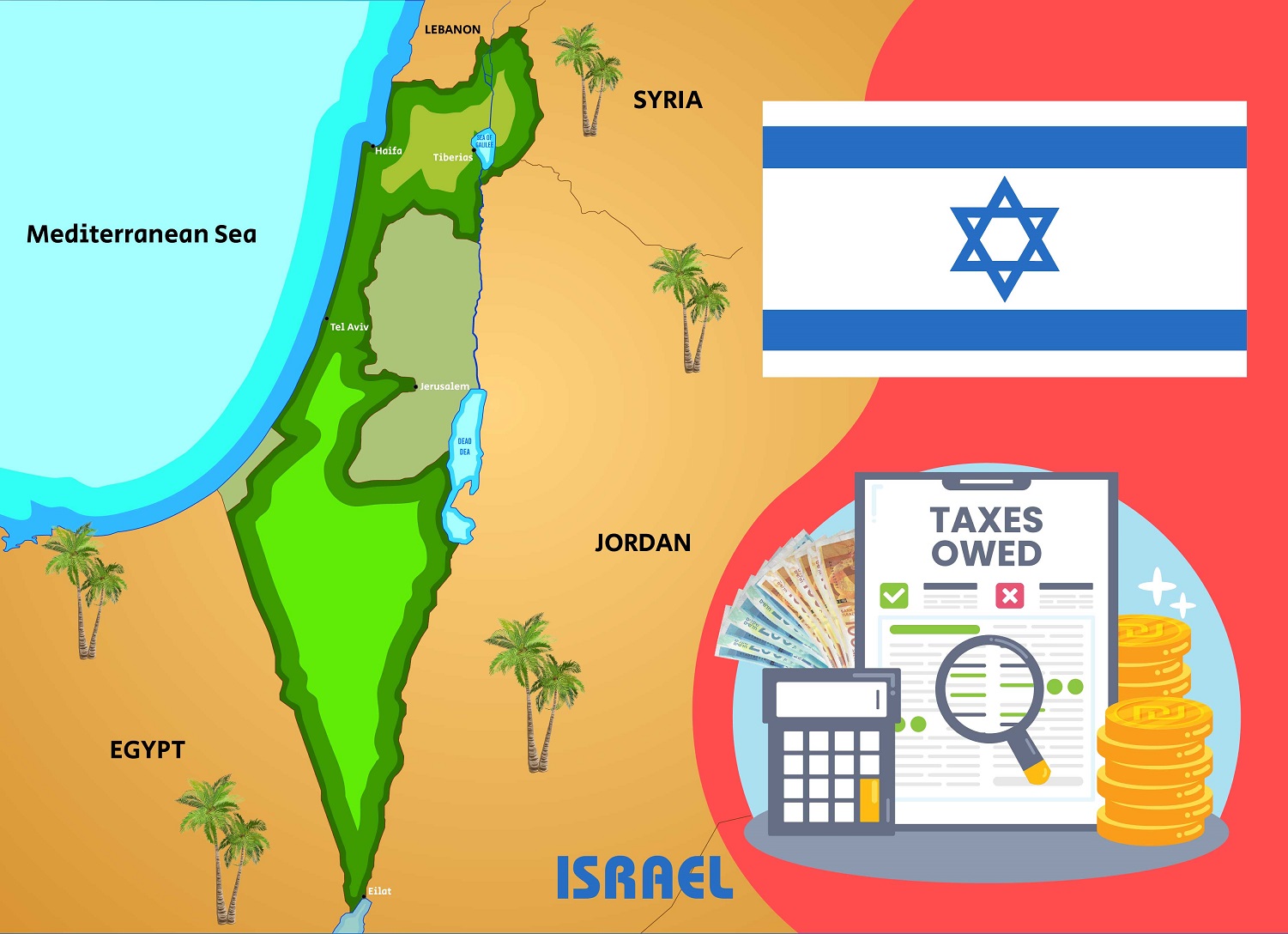Type: Original

Israel Supreme Court
sitting as the High Court of Justice
ABSTRACT of the High Court’s Ruling
The Petitioners carried on various businesses in their respective regions. They challenged the validity of enactments imposing excise duty on local manufacturers in Judea and Samaria and on goods and services in the Gaza Strip, along with maintaining accounting procedures. These had been levied following the introduction of Value Added Tax (VAT) in Israel.
Their main submissions were (a) since the Regions where the Petitioners live and work were occupied territory. Article 43 of the Hague Regulations required the Regional Commander to respect existing law unless the circumstances rendered it absolutely impossible. Such circumstances did not occur in the Regions; (b) under the said Article, all enactments not designed to promote public order and safety were forbidden, whatever the purposes thereof; (c) Article 48 permits the Military Government only to adapt the collection of taxes to existing law and therefore does not give it power to enact new legislation even if it is for the benefit of the Region and its local population.
The High Court of Justice ruled:
A.
(1)
The basic norm on which the structure of the Israeli government in Judea, Samaria and the Gaza Strip is built, is the norm of military government.
(2)
The authority of such government is temporary and it shall continue in power as long as it is effective.
(3)
On assuming authority and as long as it continues, the military government occupies the place of the central government and its local authorities that ruled in the region, and concentrates in its hands every power, right and duty of such central government under the existing law in the Region, subject to such changes as the establishment of the military itself involves and the restrictions imposed by the laws of war.
(4)
The authority of the military government is not limited to implementing the local law. It may translate its powers and directives in terms of security enactments subject, however, to the rules of the laws of war.
B.
(1)
The High Court of Justice may review the validity of acts of the military government according to the principles of Israeli administrative law so as to determine [p. 201] whether these acts are lawful under the norms which bind Israeli public servants, wherever effected.
(2)
Regarding security legislation: any deviation by the military government from the guide-lines set by the IDF commander in the area, or dependence on invalid criteria can be grounds for intervention of the High Court even though no reference is made to an act contrary to the laws of war, but to an act that is contrary to the local law in force when IDF control was established, or to legislation enacted by the IDF commander in the area.
C.
(1)
The acts of the occupying power derive their force and validity from customary international law which is embodied in international conventions and partly remains in the form of common law as reflected in the judgments of international or national judicial tribunals, in the practice of nations and in legal literature.
(2)
The latter is not merely interpretative of the international conventions which codify customary rules, it may also serve as an independent source evidencing general practice accepted as law.
(3)
When the High Court examines the question of the law as to whether there has been an act of omission or commission conflicting with public international law, it must differentiate between customary and conventional international law, and make a distinction between the two.
(4)
Customary international law is automatically incorporated into Israeli law, and becomes part of it except when it is in direct conflict with enacted Israeli law, in which case, Israeli law takes precedence.
(5)
Conventional international law does not become part of Israeli law through automatic incorporation, but only if it is adopted or combined with Israeli law by enactment of primary or subsidiary legislation from which it derives its force.
(6)
The legal principles embraced by the Supreme Court on subjects arising in the occupied territories are those of customary international law which gives force also to the local courts in the occupied territories according to Article 43 of the Hague Regulations, [as] adopted in the security legislation.
D.
(1)
In order to determine its substance and limitations, the term customary international law should be understood in accordance with its description in Article 38(1) of the Statute of the International Court of Justice (FN: 1) and as such will be applied by the High Court of Justice along with local law which, for practical purposes, excepting the temporary or exceptional cases, is accepted by a significant majority of those operating within the juridical framework mentioned above.
(2)
The burden of proving customary international law as characterized in Article 38 falls upon the party pleading it, a custom which should be acceptable to a decisive majority of the states. [p. 202].
(3)
In the absence of conventional or customary regulation of a matter, a state may freely act according to its understanding and its principles, and in so doing it executes existing international law, because the absence of an accepted custom is part of international law.

Taxation in the Occupied Territories
examined with active reference to the Hague Regulations (1907)
E.
(1)
The Addendum to the Fourth Geneva Convention of 1907 (Hague Regulations) expresses customary international law in the framework of the laws of war.
(2)
The convention contains no express prohibition on the imposition of taxes by an occupying power. The ramifications arising from Article 48 of the Addendum to the Convention should not be examined according to the narrow limits resulting from the wording of the article - which does not enable reaching definite conclusions regarding the permissible limits of taxation. But the subject should be examined in light of the quality of the military regime and its obligations, and in light of the responsibilities towards the areas which it controls.
(3)
Article 49 opens the door to the imposition of additional payment on the populace: there are no restrictions on the frequency of the levy; no restrictions on the reasons for its imposition, the manner of its collection, its scope, the individual rates that shall be determined, or resulting associated features; but there is a restriction regarding the purpose of the levy, and other restrictions [against collecting taxes] lacking real significance according to Article 51.
(4)
Articles 48 and 49 of the Hague Regulations have the sole purpose of limiting the scope of responses in the event that either of two situations arises: One, the collection of taxes by the military regime that are intended for the needs of the State, and two, the imposition of forced levies. Should either of these two actions take place, the military regime will be restricted in regards to methods of implementation and disposition of income, as detailed in the Hague Regulations.
(5)
Regarding the implementation of the payment to be made: The amount of the debt shall be determined according to the normal rules of assessment (how much to be collected) (from whom to collect). The debit is not rigidly fixed, but is flexible to no small degree and can be fixed according to existing conditions. In this matter there is no logic in applying the same criterion to a recently established military government and to a military government that has been in charge of an area with all its attendant civilian problems for more than ten years.
(6)
A forced levy by the military is clearly a means of compulsion expressed by a forced collection of cash meant to flow directly to army coffers, with no relationship or resemblance to taxes for civilian purposes.
F.
(1)
The military regime does not have the right to impose taxes on the inhabitants of the occupied territories and divert those taxes to the treasury of the state in whose name it acts.
(2)
The doctrine of investing only the ruler with the privilege of imposing ordinary taxes and not automatic [taxation], [supports the interpretation that] the military does not require a limitation on the power of imposing taxes, if such imposition is for the good of the public.
(3)
If the military government is permitted to impose military taxes, then automatically it may adopt more moderate measures.
(4)
There is no basis to the argument that a general rule of customary international law has developed, forbidding totally and absolutely and for any reason whatsoever, all military legislative enactments imposing new taxes. On the other hand, there is no reason to conclude that the matter of new taxes is left to the sole discretion of the military regime. [p. 203].
G.
(1)
In light of the absence of a decisive provision in Article 48, and since it is possible to learn from the provisions of the regulations of the lacuna (FN: 2) created as a result of the formulation of Articles 48, 49, it is to be expected that every examination of tax matters take into account the ramifications arising from the more pronounced general rules of Article 43 that deal with the obligation to maintain order in public life, and the obligation to honour existing law, unless it is absolutely impossible to do so.
(2)
In the matter of ensuring an orderly public life, we are not of necessity referring to a one-time action, but rather to an ongoing obligation which is not to be maintained automatically but rather in keeping with changing circumstances from time to time if the situation calls for it. The reasons mentioned are not necessarily those of security, but rather economic and social. The obligation to return to the prior situation cannot obscure the added obligation to ensure the continued order in public life.
(3)
The motivation for maintaining the law as it was is decisive, [unless] the general conditions and circumstances demand the intrusion for a legitimate purpose, according to Article 43.
(4)
Acts arising out of the need to maintain some balance between the economy of the territory and that of the occupying power are legitimate, even if they involve changes in the existing law.
(5)
In this regard the duration of the military government is an extremely important element, in weighing the needs of the military, in weighing the needs of the territory, and in maintaining the balance between them.
H.
(1)
The Hague Regulations make no distinction between direct and indirect taxation.
(2)
Indirect taxes frequently serve to regulate and balance the economy and therefore greater freedom of action is demanded in their imposition under various and changing conditions.

Questioning the Legality of the Imposition
of Excise Duties in the Occupied Territories
following the introduction of Value Added Tax (VAT) in Israel
I.
(1)
The benefit of the local population is not the sole criterion. There must be a balance with military requirements.
(2)
The criterion - to determine whether the military government has shown equal concern for the local population in effecting some act and/or adopting measures similar to those in the [domestic] area of the occupying power, it is sufficient to show that a reasonable exercise has been made of the powers available, granted by Article 43, to introduce a Value Added Tax.
(3)
The imposition of Value Added Tax in Israel demanded the imposition of a parallel tax in the occupied territories, in order to make possible [the] continuation of the situation hidden in the positive economic and most important facets of the territories and their population [under] the existing circumstances [p. 204].
JUSTICES
Shamgar, Meir
Bejski, Moshe
Shilo, Yitzhak
Primary Author
majority opinion
majority opinion
majority opinion
Download PDF (148 pages)
1. Article 38 of the Statute of the International Court of Justice, as established by the Charter of the United Nations, reads:
Article 38
1. The Court, whose function is to decide in accordance with international law such disputes as are submitted to it, shall apply:
a.
international conventions, whether general or particular, establishing rules expressly recognized by the contesting states;
b.
international custom, as evidence of a general practice accepted as law;
c.
the general principles of law recognized by civilized nations;
d.
. . . . . . , judicial decisions and the teachings of the most highly qualified publicists of the various nations, as subsidiary means for the determination of rules of law.
2. In law, a non liquet (commonly known as "lacuna in the law") is any situation where there is no applicable law. Non liquet translates into English from Latin as "it is not clear."
| LINKs |
| Additional Webpages of Interest |
| The Imposition of Taxes in Occupied Territory |
| Most Important Principles Governing the Law of Occupation |
| Crimes Against Humanity |
[English version] https://www.twdefense.info/trust3/ishighcourt.html
